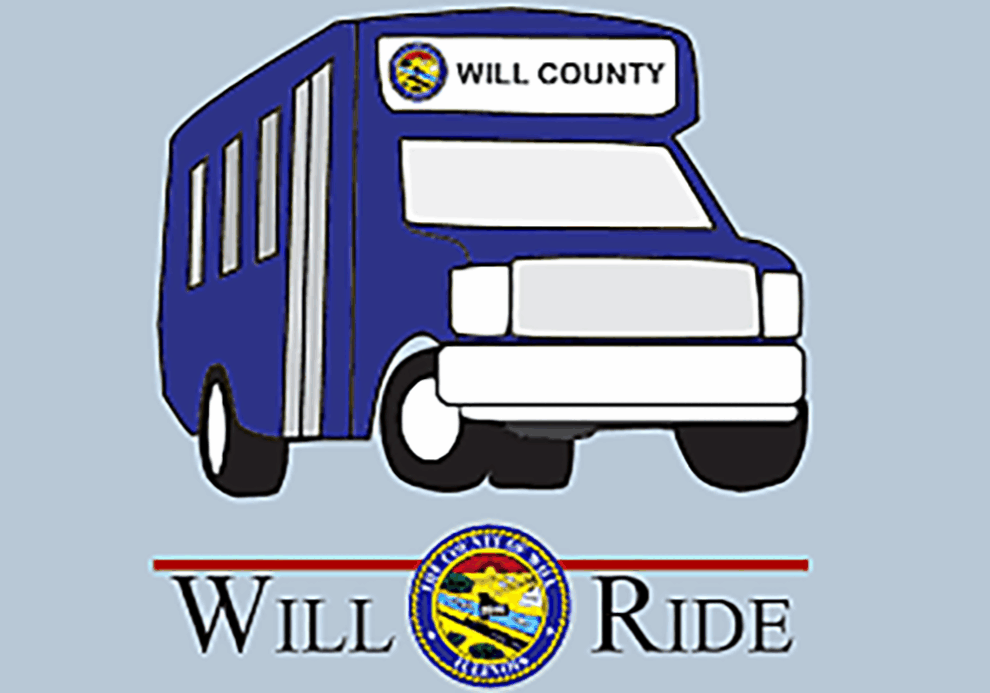
Will County Committee Advances Phased Takeover of Central Will Dial-A-Ride Service
Will County Public Works & Transportation Committee Meeting | November 2025
Article Summary: The Will County Board approved a five-year plan to consolidate the Central Will Dial-A-Ride service into its county-wide “Access Will County” program, a move aimed at creating a unified, more efficient public transportation system. The decision sparked a debate among board members over long-term costs and the financial burden on county taxpayers.
Dial-A-Ride Consolidation Key Points:
-
The county will gradually assume funding responsibility from Central Will partners—the City of Joliet and five townships—starting in 2027 and taking over 100% by 2031.
-
During the transition, the collective annual contribution from the Central Will partners will be capped at $325,000.
-
The consolidation is a key step toward establishing a single, county-wide transit system for seniors and residents with disabilities in all 24 townships by January 2026.
-
Some board members argued the plan could lead to future financial strain on Will County taxpayers, while supporters emphasized the need for equitable and reliable public transportation.
The Will County Board on Tuesday, November 4, 2025, approved an intergovernmental agreement to consolidate the Central Will Dial-A-Ride service into the county’s own Access Will County program, paving the way for a single, unified transit system.
The agreement, which passed after considerable debate, outlines a five-year phased takeover of the service currently managed by a partnership between the City of Joliet, Homer Township, Joliet Township, Lockport Township, Troy Township, and Jackson Township.
Elaine Bottomley of the Will County Executive’s office presented the plan, explaining that it was the result of a year of negotiations. “The best way to really ensure the residents have access to transportation and the same boundaries, the same program is to work towards a consolidation into a singular program under Access Will County,” Bottomley said.
Under the agreement, which takes effect January 1, 2026, Will County will begin managing the Central Will program. The Central Will partners will continue to fund 100% of their costs in the first year, with their collective contribution capped at $325,000 annually. Beginning in fiscal year 2027, the county will assume 20% of the cost, increasing its share by 20% each year until it takes on full financial responsibility in 2031. Bottomley noted that efficiencies of scale should make the combined program’s cost per ride similar or even lower than current rates.
For riders, the transition is expected to be seamless, with no changes to fares. The consolidation aims to eliminate confusion for residents who currently navigate multiple overlapping transit systems.
The proposal, however, drew criticism from several board members concerned about future costs. Member Steve Balich questioned what would happen if the program was mismanaged and ran out of money. “Are we going to keep the services the same and tax the people in all of Will County?” he asked, drawing parallels to the financial troubles of the Chicago Transit Authority (CTA).
Member Judy Ogalla echoed those concerns, stating that taxpayers are already paying more for the service. She pointed out that townships that previously funded their own dial-a-ride programs have not reduced their tax levies, meaning residents are now taxed at both the township and county level for the same service. “My whole problem with this all along is that the townships who funded this in the past… that money is still in their budgets,” Ogalla said.
Supporters of the consolidation defended it as a necessary step to provide equitable service across the county. Board member Kelly Hickey shared a personal story about her adult son with autism, emphasizing how public transit enables independence and employment. “I’m really proud that the county has taken this on,” Hickey said. “I’m proud of the work that you’ve all done and I’m very grateful.”
Democratic Leader Sherry Williams argued that the county has a responsibility to serve all residents. “I don’t want people left out just because their township doesn’t have as much money as my township,” she stated. “We’re here to provide the services.”
Bottomley confirmed that with this consolidation, the county plans to expand service to the remaining unserved townships—including Wheatland, DuPage, and New Lenox—by January 1, 2026, making Will County the last of the collar counties to implement a fully county-wide system.
The measure passed with members Steve Balich and Dave Oxley voting against it.
Latest News Stories

91% of U.S. veterans concerned about food assistance amid shutdown

Indiana state police working with ICE at Illinois border to secure interstates

Trump’s former National Security Adviser criticizes Ireland for ‘cozying up to China’

WATCH: IL lawmakers pass consequential bills early Halloween

Trump calls on Senate Republicans to nuke filibuster

FBI: ‘Potential’ Halloween terror plot foiled; multiple subjects arrested in Michigan

WATCH: Trick or treat: IL legislators pass tax increase, decoupling bill early Friday

Noem refuses Pritzker enforcement pause request, IL passes sanctuary enhancement

WATCH: Energy bill opponents say increases IL electric bills by $8 billion passes

WA Dems blame GOP for government shutdown; 1 million in state could lose SNAP benefits

Officials react to allegations of civilians impersonating ICE

Illinois quick hits: IL taxpayers have highest pension debt obligations in U.S.


